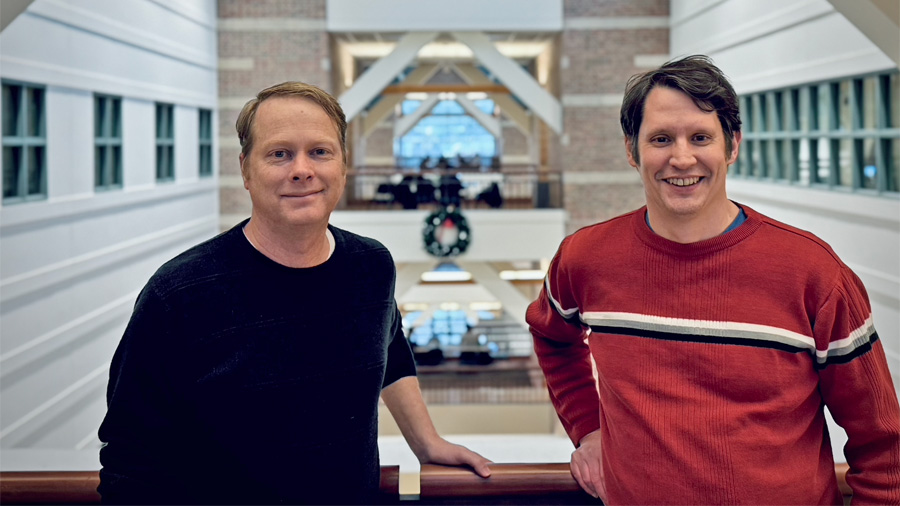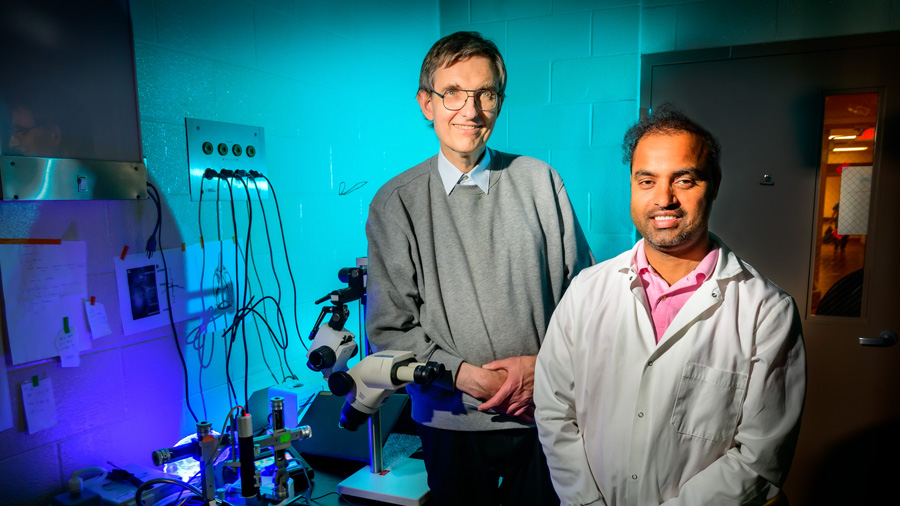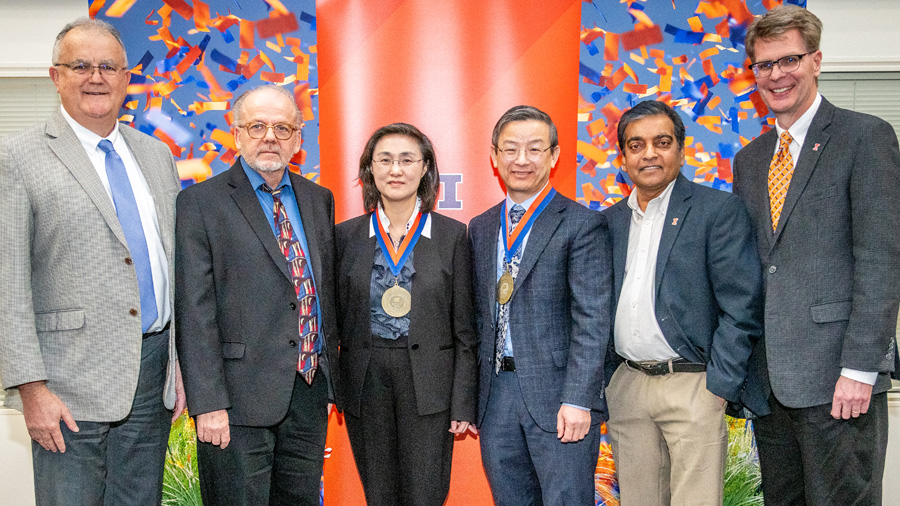Dr. Cari Vanderpool recently took on the role of interim associate dean for research and advanced studies at the College of Veterinary Medicine. She will divide her time between this position and her ongoing commitments as professor, associate head, and Charles G. Miller Professorial Scholar in the Department of Microbiology at the College of Liberal Arts and Sciences.
“I am delighted that Professor Vanderpool has agreed to serve our college in this capacity,” said Dean Peter Constable. “She brings a passion for mentorship and building community. I know our research enterprise will be in good hands as we conduct a national search for a permanent associate dean.”
In August Dr. Lois Hoyer, who had served as associate dean for research and advanced studies since 2010, returned full time to her faculty role in the college’s Department of Pathobiology.
‘Microbes Cross Boundaries’
“As a microbiologist, I’ve pursued research with a human medical bent, but I’m very interested in how microbial research benefits the environmental and animal realms,” said Dr. Vanderpool.
“Microbes connect all those ecosystems and cross boundaries. I look forward to learning new things as part of the veterinary college, where the mission is not human-centric.”
Since joining the university in 2006, Dr. Vanderpool has fostered research connections across campus. In 2018, she led the creation of the Microbial Systems Initiative, which brings together scientists from five colleges, including the veterinary college, to mentor early-career researchers and stimulate new research directions.
The Microbial Systems Initiative gained campus funding to support hiring of a cohort of six junior faculty, including Dr. Christopher Gaulke in the Department of Pathobiology, in 2020.
“I really enjoyed everyone at Vet Med whom I met through the Microbial Systems Initiative,” said Dr. Vanderpool.
‘Support the Next Generation of Researchers’
One facet of her role as research dean will be to mentor junior faculty.
“It’s important to me to support the next generation of researchers. My own research has mostly been funded through the National Institutes of Health, but the funding landscape has changed over the past 15 years.
“I’m also learning how to support clinical faculty at Vet Med in funding research. I want to help them use their limited time strategically, to apply for grants that make sense for them,” she said. “I’m a big believer in quality, not quantity.”
Dr. Vanderpool’s own research focuses on fundamental genetics, molecular biology, and physiology of gut bacteria and their response to stressors and the environment. As director of the Microbial Systems Initiative, she is working to develop an interdisciplinary online master’s degree in Microbiome Analytics.
Dr. Vanderpool earned her Ph.D. in microbiology, immunology and cancer biology in 2003 from the University of Minnesota. She then spent three years as a postdoctoral fellow at the National Cancer Institute at NIH.
Earlier this year she was elected a fellow in the American Academy of Microbiology, an honorific leadership group within the America Society of Microbiology.

![[Dr. Cari Vanderpool]](https://vetmed.illinois.edu/wp-content/uploads/2021/11/vanderpool-atrium.jpg)


